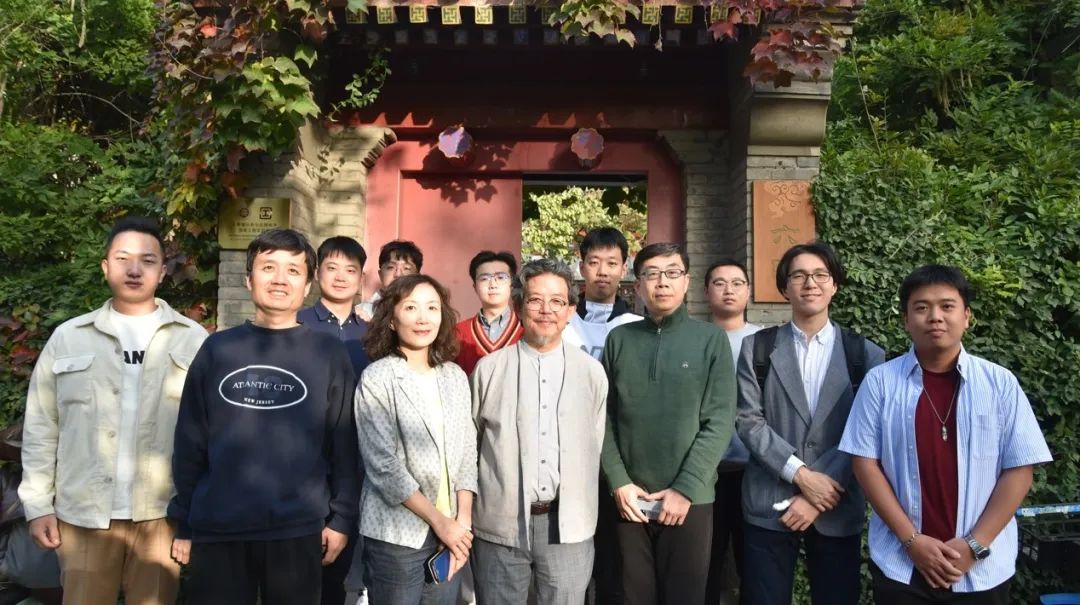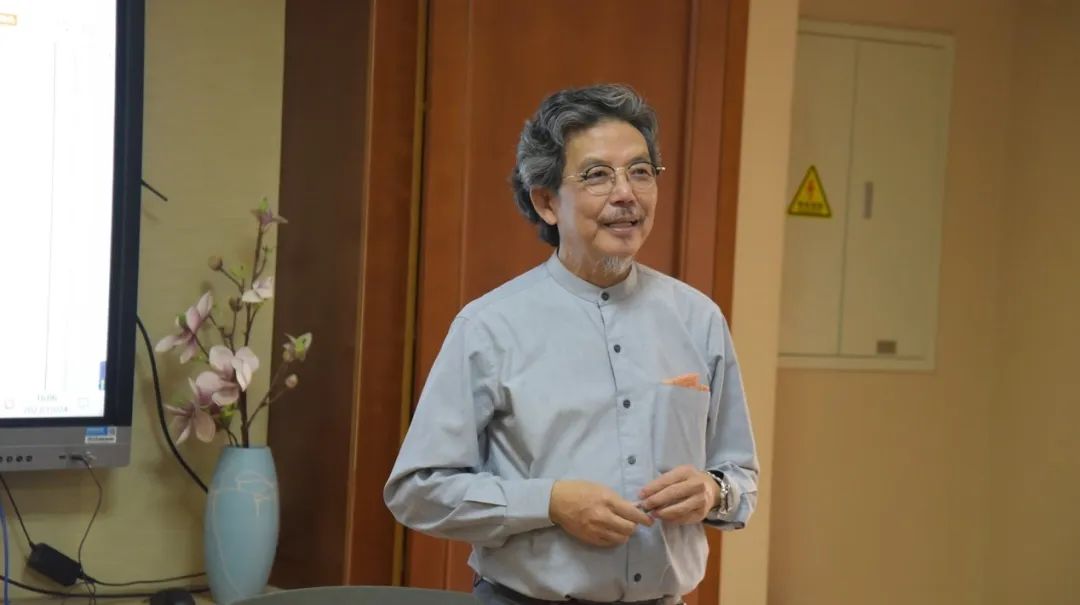
The 8th lecture of the Adventus Amicorum series was held on October 24, 2023, in No.6 Jingyuan. Ooi Kee Beng, Executive Director of the Penang Institute, Malaysia, shared his thoughts on the topic, “Autonomous Knowledge Production in Southeast Asia from the Perspective of the Institute of Southeast Asian Studies in Singapore (ISEAS)”. The lecture was moderated by Kong Tao, a senior research fellow at the Institute of Social Science Surveys of Peking University. Other participants included Prof. Zhai Kun, deputy director of the Institute of Area Studies, Peking University (PKUIAS); and Prof. Song Qingrun, from the School of Asian Studies at Beijing Foreign Studies University (BFSU).
Ooi structured his lecture around three key themes: a “Short Discussion about Area Studies”, “Discussion on Southeast Asia, the Phenomenon” and “ASEAN and its Future/s.” He began by sharing his personal experience of area studies and his insights into the development of the discipline.
He began his academic career by studying Sinology and Chinese Philosophy at the University of Stockholm, but his curiosity about civilization could not be satisfied by the traditional Western research path. With a curiosity to explore the nature of civilization, he returned home to Malaysia to become a regional observer and then joined ISEAS in Singapore. He expressed his belief that area studies, as represented by ISEAS, had formed a new research paradigm by integrating various research paths in the natural sciences, social sciences, and humanities. The concept of “area” is the foundation of area studies. Southeast Asia as an area is the product of the perspective of the “other” in the process of its encounter with the West, rather than the result of endogenous factors. The problem of regional integration is a problem of modernity for Southeast Asia, which is deeply rooted in the dilemma of nation-state building, he said.
Ooi then introduced Southeast Asia as a “phenomenon” in international politics. After the end of the Cold War, ASEAN gradually built up a regional cooperation network centered around itself. The “ASEAN centricity” has become a conspicuous “phenomenon” in international affairs. Internally, the regional positioning of Southeast Asia depends on the national characteristics and strategic orientation of the countries in the area. Externally, the global landscape and the involvement of major powers are also challenges that Southeast Asia has always had to face. Thus, ASEAN countries need to find a balance between three different strategic orientations: isolationism, regionalism, and internationalism. The background to the establishment of the Southeast Asian Studies Institute in Singapore was the wave of nation-state building and regional integration. Given the need for Southeast Asian countries to build a regional identity and promote foreign policy, the institute has always focused on regional affairs and country studies as its priorities. It is a matter of pride that the Institute of Southeast Asian Studies in Singapore today not only researches ASEAN, but is also a shaper of ASEAN, he said.

Finally, Ooi looked at the future of ASEAN and knowledge production in Southeast Asia. “ASEAN centricity” is currently being contested, and the future of ASEAN is being seriously questioned. Disparities in economic aggregates, divergent geopolitical positions, ethnic and religious tensions, and the failure of the nation-building process in some members are eroding ASEAN’s cohesion. Second, the involvement of extra-territorial powers and the intensification of great power rivalries are reducing ASEAN’s space as a regional center. Third, ASEAN countries have a relatively weak sense of common destiny, have not formed a common set of values and regional identity, and are still weakly interconnected. The above changes in the situation and the path dependency of conceptual use pose challenges to the autonomy of knowledge production in Southeast Asia, he said.
During the discussion session, the panelists engaged Ooi in a scholarly exchange on the implications of his presentation. Prof. Song said that ASEAN was now at a new crossroads, and the choices it made now would affect its future development and prospects. The issues of Myanmar and Timor-Leste’s accession were important challenges for ASEAN to face now. Kong Tao expressed her belief that the value of this lecture lay in reminding us to return to the original core of regional country studies and that understanding other countries provided us with references and comparisons for understanding ourselves. In the process of research, scholars must insist on decolonization, stop being self-centered, and maintain the spirit of reflection on the power structure of knowledge, Kong said. Ooi responded positively to each of the above discussions.


